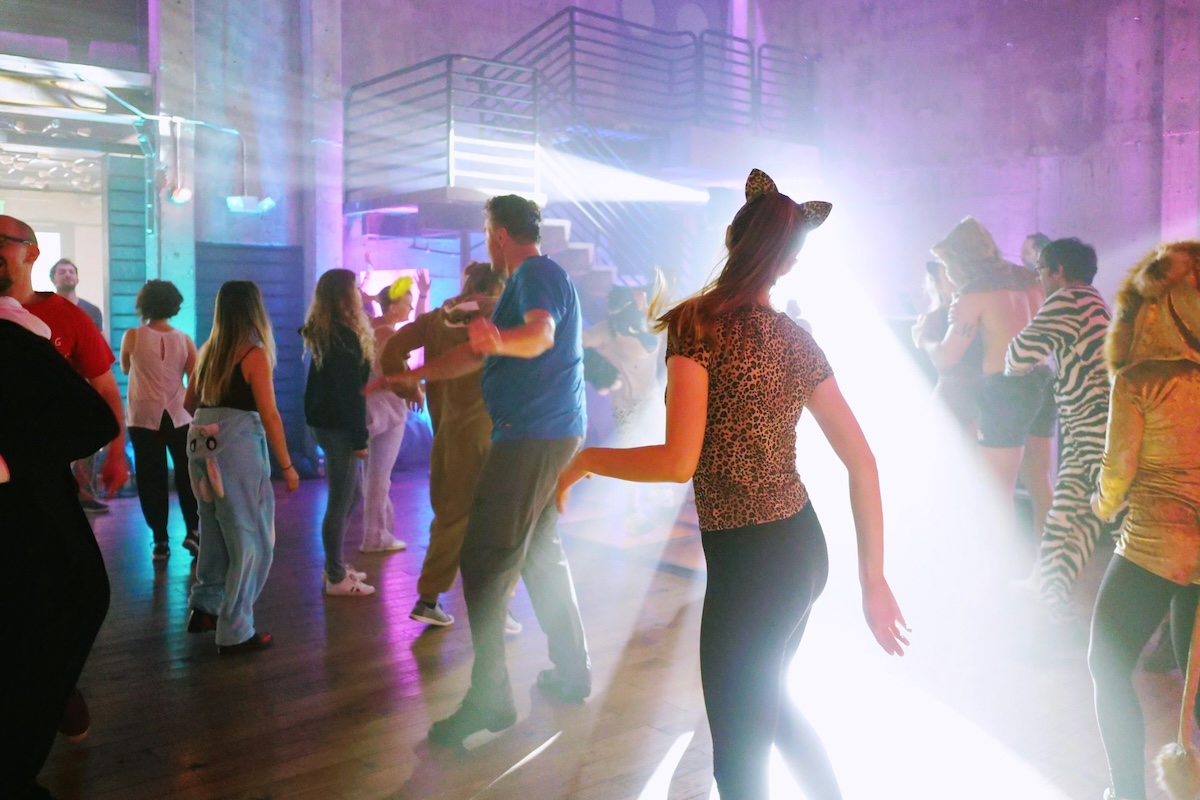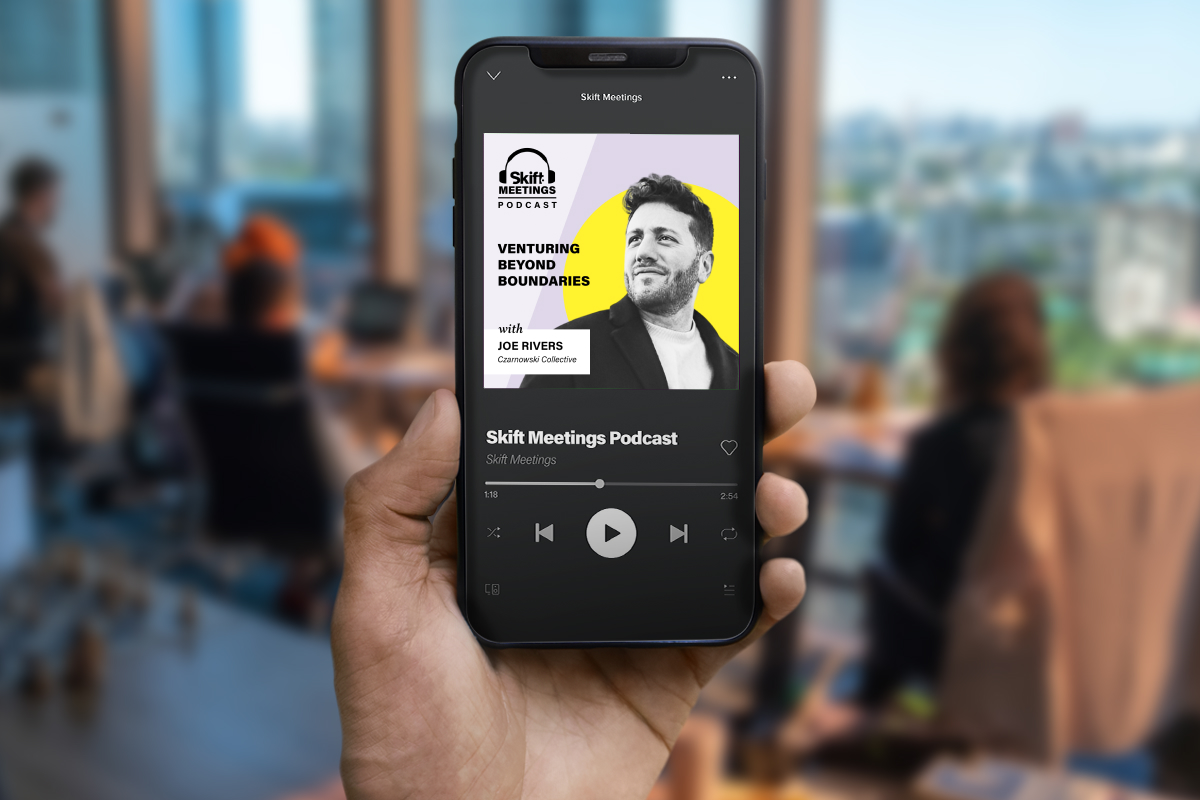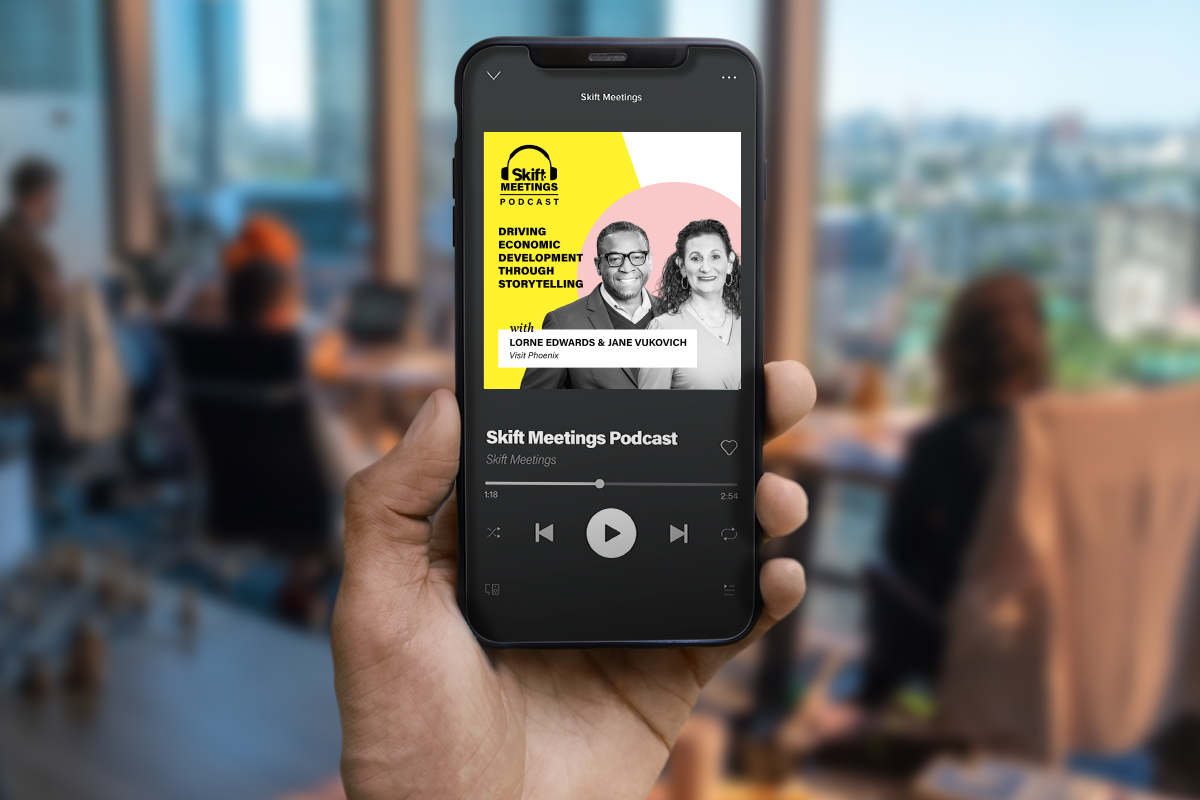Skift Take
In this episode of the Event Manager Podcast, we’re joined by Jeff Bzdawka, chief executive officer of Knowland, a hospitality data analytics and technology company.
A funny thing happened on Jeff’s way to becoming a dentist — he took a part-time job at McDonald’s and fell in love with the service industry. This led him to explore the hotel side of the service industry by taking another part-time job at Hyatt. From there, there was no looking back.
Jeff’s entire professional career has been in hospitality, and he has spent time both on the hotelier side as well as the hospitality technology services provider side. The bulk of his time has been with Hyatt, having spent 20 years with the company over the course of two runs. He is who he is because of Hyatt and marrying his high school sweetheart, he shares.
He has held senior leadership roles at Hyatt, most recently as senior vice president of global hotel technology with Hyatt’s operations team, along with stints at SABRE and Pegasus Solutions, where he ran their centralized commission payment program, now known as Onyx Center Source, and global service delivery. He left Pegasus to join TravelClick as Chief Operating Officer. The company provided business intelligence and distribution marketing services. Just over a year ago, he joined Knowland as CEO. Knowland is a data-as-a-services provider focused on delivering actionable insights for the meetings and events space.
Bzdawka calls himself an accidental technologist who is a hotelier first and foremost. His focus is on finding ways to use technology to simplify life, create better experiences for guests, customers, operators, and owners, and deliver results that matter for the business. For example, are the technology solutions adding top-line revenue, are the technology solutions helping operators operate efficiently, and are technology solutions helping drive colleague engagement and guest satisfaction?
Jeff believes that what takes an event from purely good to great is its flexibility, keeping in mind that guest and customer needs and expectations are rapidly evolving, and what worked yesterday might not work today, and choice. It’s important to understand that many attend an event and everyone’s view of great may be different. Being able to cater to individual needs while delivering for the entire group or event is a bit of a balancing act. “I’d also be remiss not to mention technology. While it should not be front and center, technology enables an event. Well-intended technology that does not work or is overly complex can actually make a good meeting go bad,” he explains.
Jeff shares a story in which a senior vice president of asset management from a major ownership group told him, ‘We are operating in the best of times and the worst of times.’ Demand, rate, occupancy, and in-term profitability are solid; however, trying to recover from the wounds created over the past two years is difficult. They include delayed mortgage payments, beleaguered debt service, and delayed investments in asset improvements — all making it hard to service the current business demand.
Subscribe to the Skift Meetings Podcast: Apple Podcasts | Spotify | Overcast | Pocket Casts | Google Podcasts | Amazon | RSS
He also stresses that it is important to understand how demand is returning. While 2019 is used as a benchmark, it’s important to realize that business is not the same. Demand is different, expectations are different, and how events are sold and serviced is different.
The single biggest challenge the industry faces is a staffing shortage — a real obstacle for groups and events. This lack of staff starts with sales resources, following through planning, and then execution of the event. The industry is in the rebuild mode right now — rebuilding teams, rebuilding relationships, and being able to adequately staff when in some instances, the return is lumpy.
The industry is built upon relationships, says Jeff, and with the churn of people in many hospitality roles, relationships are gone and must be re-established. In many instances, on both the supply and demand side, the people are different, and often, new to hospitality which means there is a steeper learning curve.
Meetings and events are back. Recovery has accelerated so much, especially in the second quarter of 2022, that a full recovery is expected in 2023.
Meetings and events have evolved and are different than before the Covid shutdown. They are more casual and often combined with a few days of leisure before or after the gathering. In many cases, the focus is on getting colleagues together to build team camaraderie. “No work/work meetings” are becoming popular to bring remote employees together to re-engage and build culture.
Flexibility is another area that Bzdawka believes is important, as he noted earlier when discussing what makes an event truly great, adding that there must be choice. That includes everything from how attendees engage to activities and menus. Venues, in turn, must be flexible in the ability to customize to the target audience, whether the focus is sustainability, technology, or one-on-one meetings. To determine if an event is great, you must ask, ‘Did all attendees get what they came for?’
As companies contend with small staff, time must be respected. Jeff shared the details of a conference he recently attended where sessions ran over, and there wasn’t any vendor-attendee networking time. As a result, both groups were frustrated as they did not get what they came for.
Productivity is a focus in today’s world more than ever before. There is less of a desire to measure performance on vanity metrics like the number of RFPs one gets and more of a focus on results.
Before our conversation, Jeff was part of a webinar with 150 registered hoteliers. Thirty-three percent said low win rates on inbound RFPs is the top obstacle to their sales success. This was second behind smaller sales teams.
New markets are evolving with business coming from areas that hoteliers did not expect, said Jeff. Feeder and secondary markets are expanding, while traditional gateway cities like Chicago, Washington, D.C, New York, San Francisco, and Seattle are lagging due to international travel not being back to pre-pandemic levels.
As a whole, the industry is coming back with a vengeance due to pent-up demand, reduced corporate travel restrictions, and reinvigoration of company cultures. Events have taken on added importance as remote work is here to stay, and companies are gathering employees together to reconnect and strengthen company values.
Corporate is the biggest segment to come back, representing over 60 percent of meeting volume. SMERF and association business continues to be strong but represents only about 30 to 35 percent of events.
Jeff said in this instance, he doesn’t mind being off with his forecast regarding where the industry is. The second quarter of this year outperformed Knowland’s forecast by 25.8 percent, so it had to accelerate its recovery forecast.
Knowland expects the majority of markets to be more than 80 percent recovered by May of 2023 and the U.S. to be 106 percent recovered by the end of 2023. The corporate segment is driving that growth. It encompasses 60 percent of meetings and has jumped from 53 percent recovery in the first quarter to 75 percent in the second quarter of this year.
Jeff says August will have some ups and downs due to native seasonality, and September will roar back with the last four months of the year experiencing strong growth.
An interesting fact he shares is that smaller meetings are getting larger and larger meetings are getting smaller. It is essential to understand that more than 78 percent of meetings were less than 200 attendees in 2019, and less than 3.6 percent of events were over 1,000. So those ‘whale’ events that get everyone’s attention are a small percent of the overall industry.
Given his wealth of experience, it’s no surprise that this episode is full of interesting insights and the above is only a short preview. To hear more of our discussion with Jeff, head to your favourite podcast app now.





